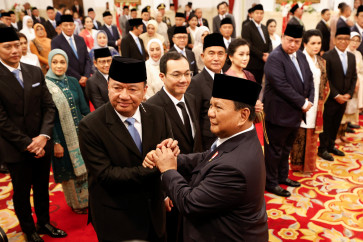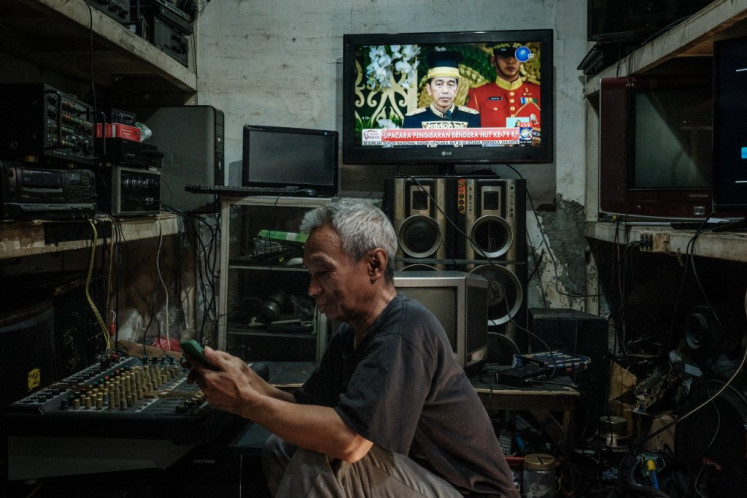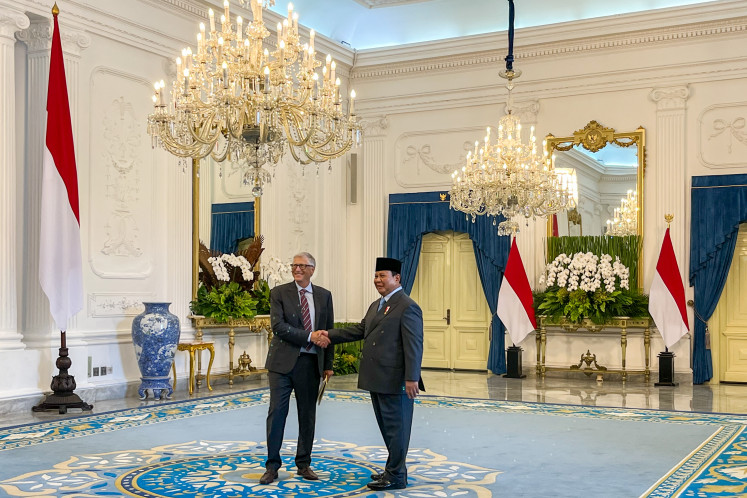Widjojo Nitisastro, architect of New Order’s economy, dies
Widjojo Nitisastro, the main architect of the Indonesian economy during Soeharto’s New Order era, passed away early on Friday after a battle against illness
Change text size
Gift Premium Articles
to Anyone

W
idjojo Nitisastro, the main architect of the Indonesian economy during Soeharto’s New Order era, passed away early on Friday after a battle against illness.
Widjojo, the country’s most influential economist, died at 2:20 a.m. at Cipto Mangunkusumo Hospital in Jakarta at the age of 84.
His body was brought to the National Development Planning Board’s (Bappenas) office for a short while before burial at the Kalibata Cemetery for Heroes in South Jakarta later in the day.
“We have again lost one of the country’s best children,” said President Susilo Bambang Yudhoyono, who paid his last respects at Bappenas.
“The late [Widjojo] placed the economic foundations that have paced not only [economic] growth but also [development] distribution,” he added.
Former finance minister Sri Mulyani Indrawati expressed her grief, and praised Widjojo for his five-year plans that established the country’s development and successfully brought Indonesia back to its feet after the prolonged economic depression of the 1960s.
Sri Mulyani, currently the World Bank’s managing director, stressed that Widjojo had left footsteps for the current government to follow in facing the global economic crisis, including oil price hikes and the eurozone debt crisis.
“Pak Widjojo was a classic example of an architect who worked very hard behind the scenes. We have lost a great man,” she said as quoted by kompas.com.
“‘Widjojonomics’ are still relevant, to be implemented even during this reform era,” Sofjan Wanandi, chairman of the Indonesian Employers Association (Apindo), told Antara news agency.
Returning to Indonesia in 1961 after graduating from the University of California at Berkeley with a PhD degree in economics, Widjojo had repeatedly expressed his concerns with former president Sukarno’s ignorance of the role of market mechanisms, which brought the country into hyperinflation and severe corruption under his leadership.
Widjojo, who was a professor at the University of Indonesia’s School of Economics, found his suggestion to combine economic analysis with policy making was underestimated by the Sukarno’s administration, simply because the former had studied in the US, which opposed the president’s leftist views.
Widjojo did not have to wait too long to get his chance. After Sukarno stepped down in 1966, president Soeharto asked Widjojo, then 39 years old, to lead his economic advisory team.
In January this year, a book compiling Widjojo’s selected writings and speeches, Pengalaman Pembangunan Indonesia: Kumpulan Tulisan dan Uraian Widjojo Nitisastro (Indonesian Development Experiences: A Collection of Writing and Notes of Widjojo Nitisastro), was released.
Widjojo, however, could not attend the launch since he had been unconscious for more than a year and was being treated in hospital.









